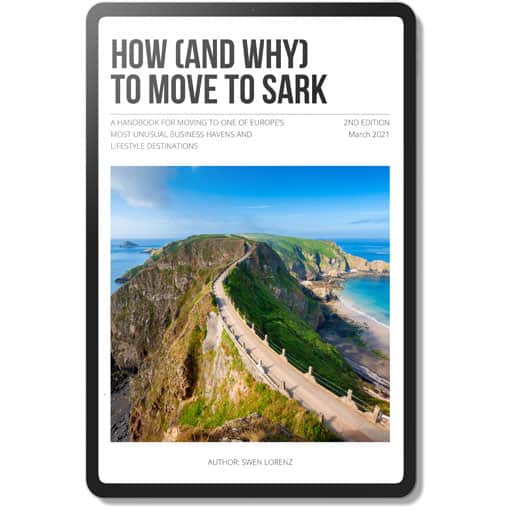There are two ways of doing business:
- The conventional way: squeezing every penny out of a business relationship. Fighting over that margin, never paying more than necessary, trying to outsmart your business partners at every corner.
- The unconventional way: paying your business partners more than they expect and surprising them with extras that you weren’t contractually obliged to.
In my experience, giving away more results in you earning more. This may seem counter-intuitive at first, but it works.
A real-life example that I experienced the other week reminded me of this principle.
Here is why giving away a bit more money in the short term will help you make a lot more in the long term – provided you play your cards right.
Paying more than you have to can be good business management
Let’s face it, all successful entrepreneurs and managers can choose who they work with.
When in doubt, who do you think they would choose (and keep) as a potential business partner:
- Someone where they feel a need to double-check the figures and chase payments, possibly mixed with an occasional feeling that they were outsmarted.
- Someone who gives them more than they’re due, and who sends that extra money without even being asked for it.
I know who I’d rather work with.
Why would that ever be relevant, and how can you utilise it to your advantage?
Here is the real-life example I promised.
Occasionally, I pay other people to bring additional business to my two websites (in addition to my personal one, I also operate Undervalued-Shares.com [1]). This is done through so-called affiliate marketing whereby my websites track the origin of new paying customers, and the referring website gets a percentage of my revenue.
In my experience, giving away more results in you earning more. This may seem counter-intuitive at first, but it works.
The problem is that the systems for tracking the origin of a new customer aren’t perfect:
- Some customers may not use the referral link provided by the affiliate partner and come to my websites via a subsequent Google search.
- I might extend my product offerings at a later stage, and the customer I got from an affiliate partner generates revenue that is not covered under the original affiliate marketing contract.
- A new customer might have first heard about me from affiliate marketing partner #1, only to make a purchase after hearing about me again through affiliate marketing partner #2 (and I happen to know because the customer tells me about it in an email).
If you wanted to maximise your short-term profit, you would keep all that secret from your affiliate marketing partners. Fair enough, since you’d be in line with the contract.
However, if you are clever and keen on growing your business, you use these cases as a reason to send your affiliate marketing partners a cheque they don’t expect:
“Hey, a few folks who came through your website ended up buying some extra products that weren’t covered by our agreement at the time. Enclosed is a cheque that is equivalent to the usual percentage.“
If you do that, you’ll rise to the top of all the people someone else likes doing business with.
You’ll then find that your affiliate partners:
- Try to repay the favour by sending you extra traffic that wasn’t agreed.
- Think harder about how they can promote you.
- Stick with you for a long time, which saves money on building new relationships.
The affiliate marketing partners of my two websites are just an example. You can apply this to any other business.
It’s also entirely rational and good management. Finding new clients and creating new business partnerships cost money. Investing that little bit of extra cash in your existing relationships may well generate you a lot more business a lot easier.
I never understood why there aren’t more people doing it like that. Presumably, parting from a few pennies when you don’t have to appeals to our human desire for short-term profit maximisation. Playing the long game is not in our genes.
That’s why I believe this method will continue to make you stand out. Few businesses are going to adopt it because bureaucracy or internal politics will stand in their way. Imagine telling your superior: “We made that payment that we weren’t contractually obligated to make, but we felt it was only fair to make it.” Some corporate busybody from finance, HR or compliance would walk you down the gallows there and then.
Finding new clients and creating new business partnerships cost money. Investing that little bit of extra cash in your existing relationships may well generate you a lot more business a lot easier.
In all likelihood, you will find this easier to apply if you own 100% of your business. Then you can simply follow your instinct without having to consider how conventional thinkers feel about it.
Either way, the general mechanics behind this method are straightforward and entirely rational:
- Invest a bit of extra money in your existing relationships.
- Reap much bigger rewards long-term.
- Along the way, have fun by being a bit different from everyone else.
There is nothing altruistic about it. It’s just intelligent behaviour, albeit a bit counter-intuitive at first.
A phone call that triggered this article
As mentioned above, this article is based on a real-life example, a conversation with a potential affiliate marketing partner. An experienced entrepreneur himself, this partner confronted me with a valid concern: what if the clients he sent my way ended up buying products that weren’t covered under our marketing agreement?
I could have made the obvious promises, about me being a good guy, trust me, bla bla bla. However, I had something much more potent.
As luck would have it, we had a mutual friend whom I had offered a payment that I wasn’t even contractually obligated to. Et voilà, instead of me just promising to recognise such extra revenue somehow, I could say: “Speak to our mutual friend, he can confirm that I initiate extra payments when the situation asks for it – without being asked for it!“
Needless to say, this shifted our conversation in a very good direction. I call that good karma paying off for your business.
Once you have done this for a few years, you’ll have multiple episodes of how this has paid off for you. It’ll become natural to work on that basis, and you’ll wonder why anyone would do it any differently.
If you liked this article, then you will probably also enjoy:

Looking for clever ways to invest your hard-earned cash?
Head over to my investment website Undervalued-Shares.com [5] for common sense investment opportunities from around the world. Ideas that you won’t find anywhere else!
Did you find this article useful and enjoyable? If you want to read my next articles right when they come out, please sign up to my email list [6].
Share this post:

